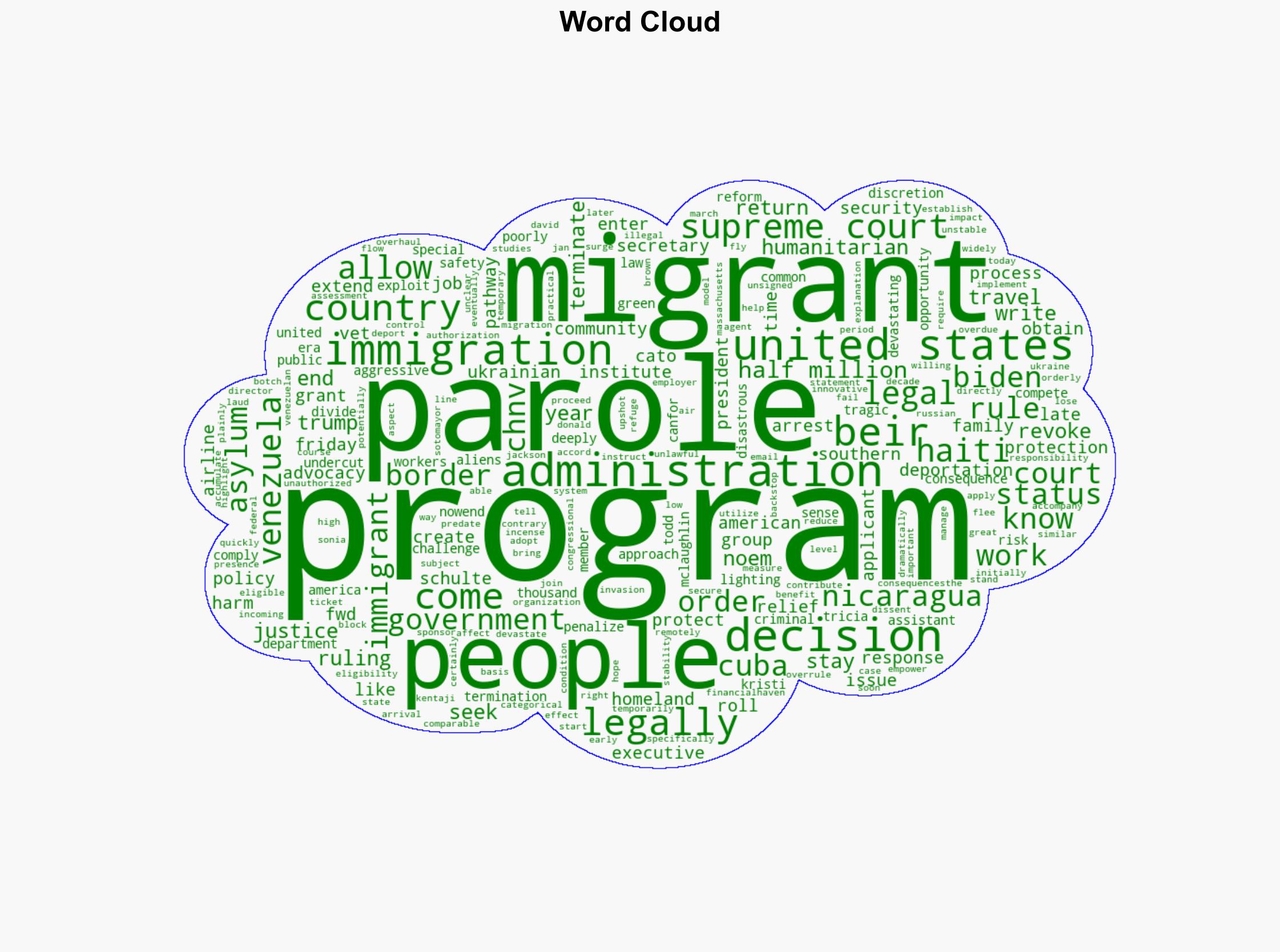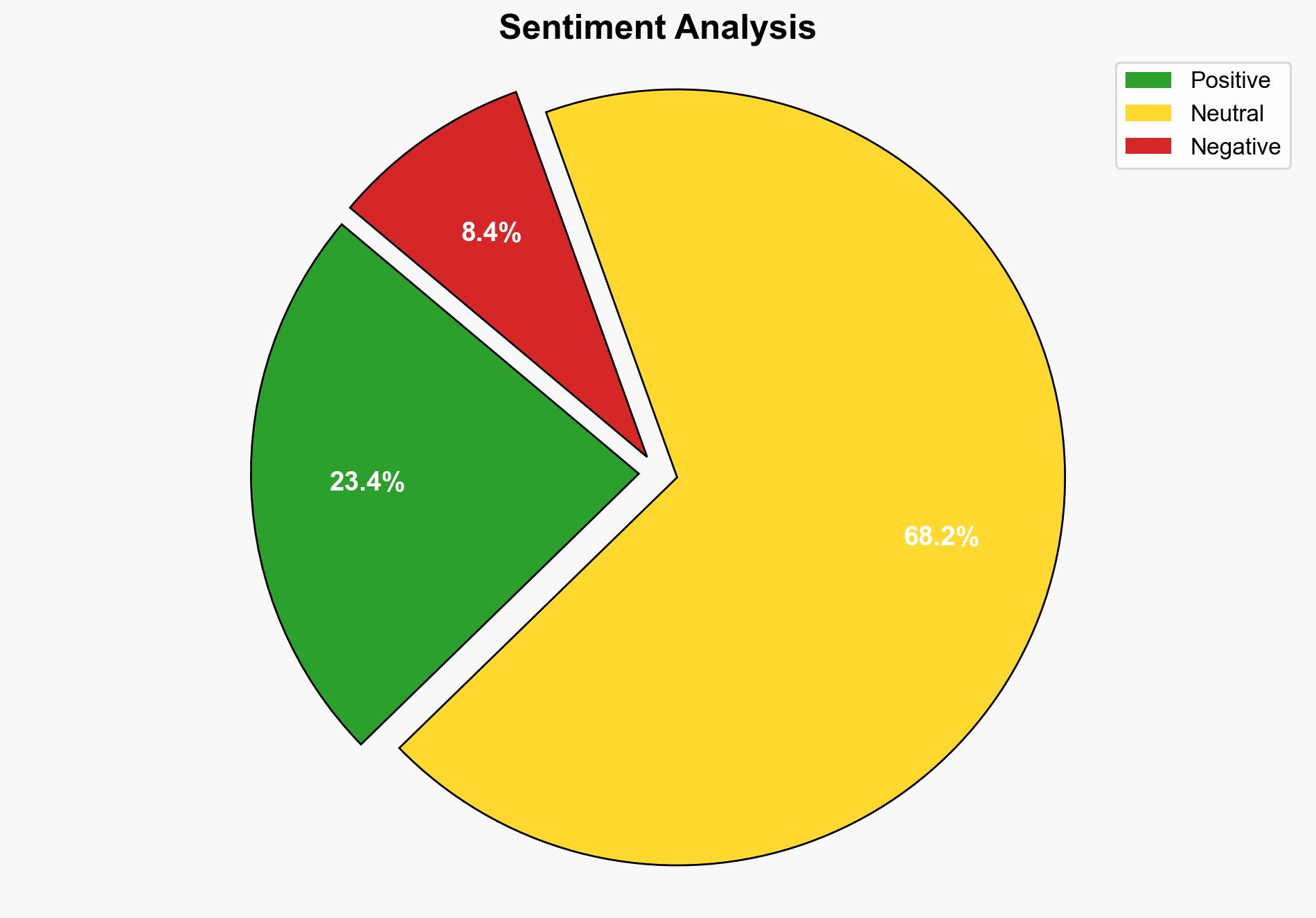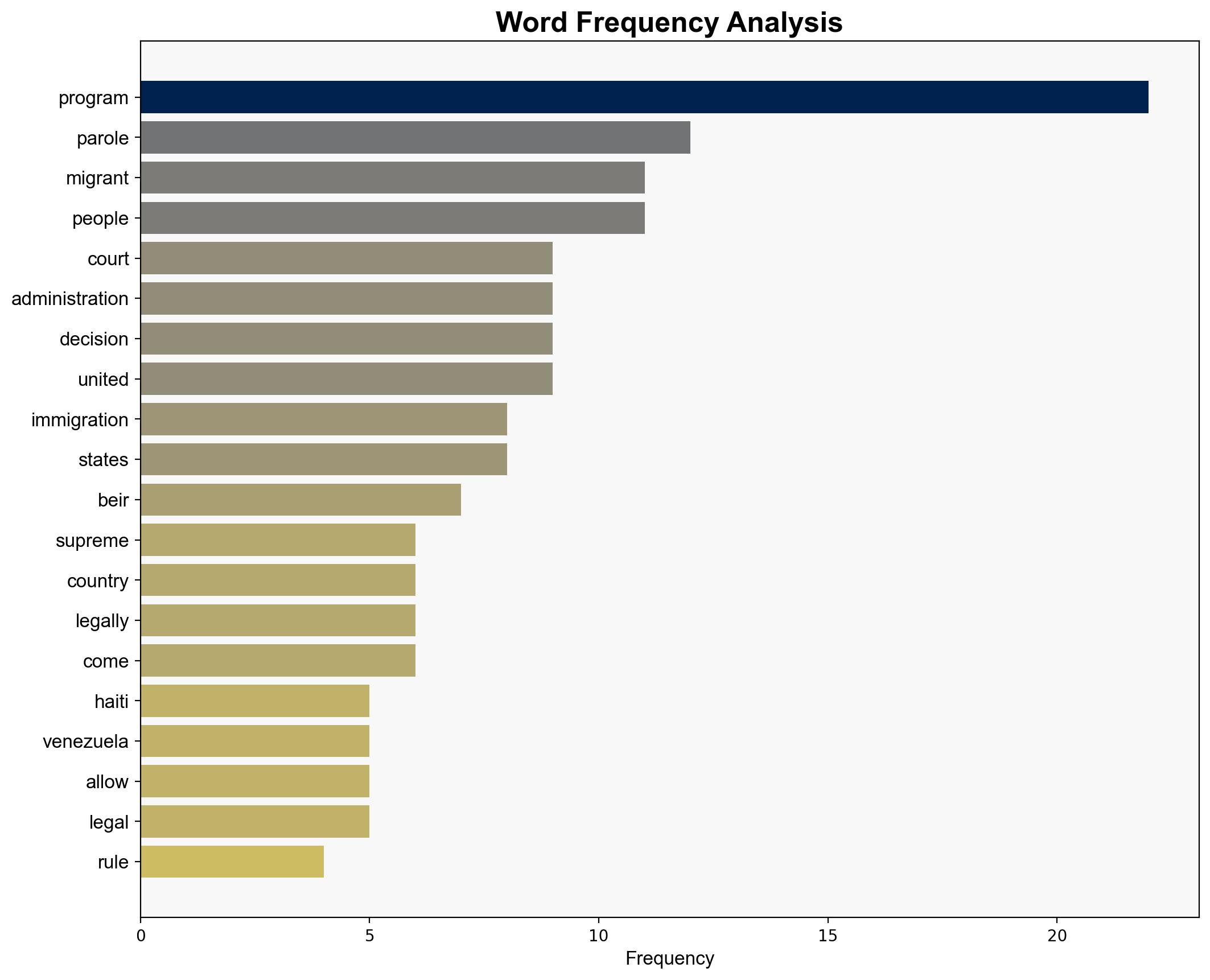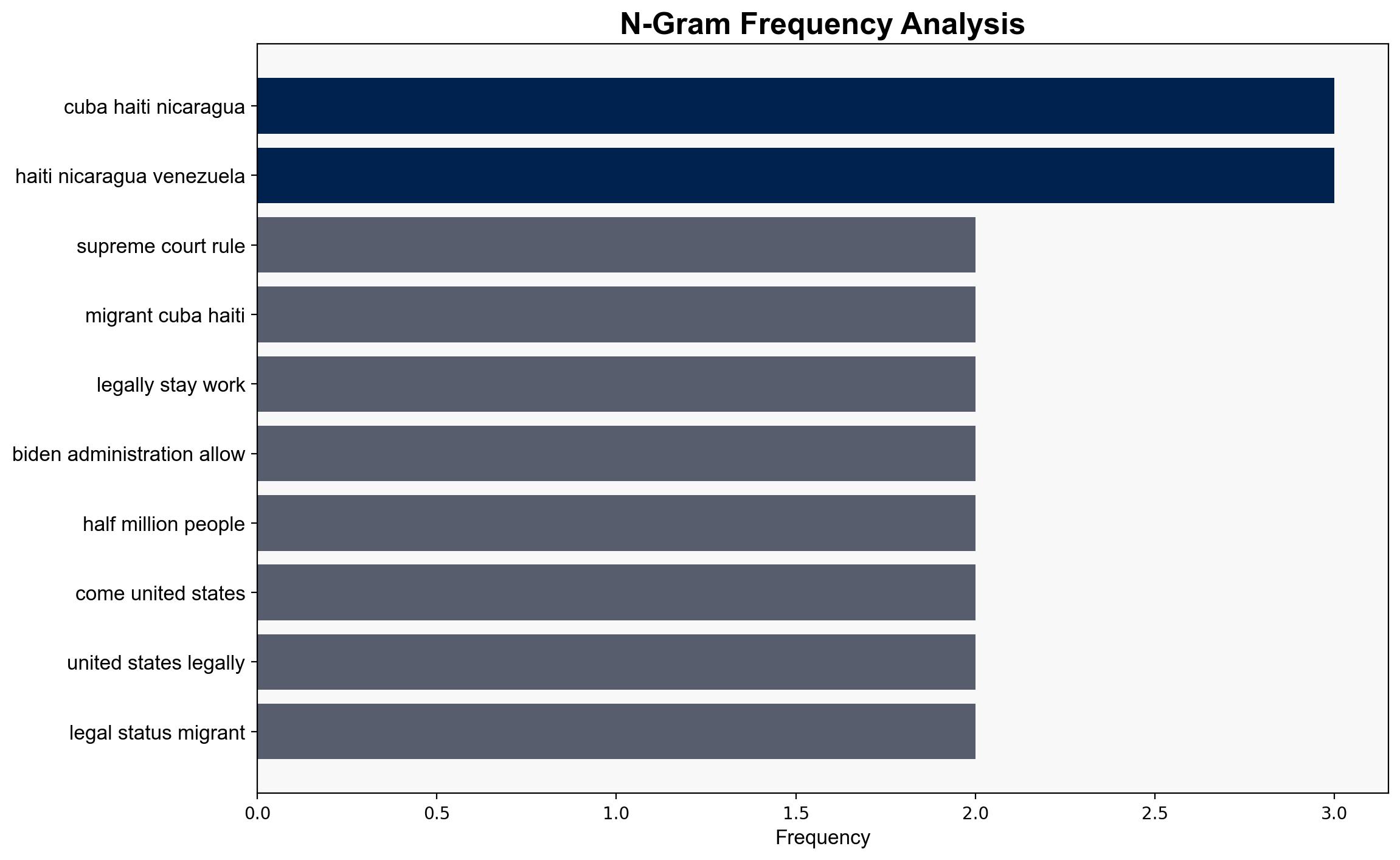What to Know About the Biden-Era Migrant Program the Supreme Court Just Let Trump End – Time
Published on: 2025-05-30
Intelligence Report: What to Know About the Biden-Era Migrant Program the Supreme Court Just Let Trump End – Time
1. BLUF (Bottom Line Up Front)
The Supreme Court’s decision to allow the termination of the Biden-era CHNV (Cuba, Haiti, Nicaragua, Venezuela) parole program marks a significant shift in U.S. immigration policy. This program, which provided temporary legal status and work authorization to migrants from these countries, is now subject to revocation. The decision may lead to increased deportations and heightened tensions within immigrant communities. Strategic recommendations include preparing for potential increases in illegal immigration attempts and addressing humanitarian concerns.
2. Detailed Analysis
The following structured analytic techniques have been applied to ensure methodological consistency:
Causal Layered Analysis (CLA)
– **Surface Events**: The Supreme Court’s ruling ends the CHNV parole program.
– **Systemic Structures**: U.S. immigration policies are influenced by executive orders and judicial decisions, reflecting broader political agendas.
– **Worldviews**: The ruling underscores differing perspectives on immigration control versus humanitarian relief.
– **Myths**: The belief that stricter immigration policies enhance national security is prevalent.
Cross-Impact Simulation
– Potential ripple effects include increased pressure on border security and potential diplomatic tensions with affected countries.
– Economic dependencies may shift as the labor market adjusts to changes in migrant workforce availability.
Scenario Generation
– **Best Case**: Effective management of border security and humanitarian aid mitigates negative impacts.
– **Worst Case**: Surge in illegal crossings and humanitarian crises at the border.
– **Most Likely**: Gradual increase in unauthorized immigration attempts with moderate economic impact.
3. Implications and Strategic Risks
The termination of the CHNV program could lead to increased unauthorized immigration, straining border security resources. Economic implications include potential disruptions in labor markets, particularly in sectors reliant on migrant workers. Politically, this decision may exacerbate tensions between federal and state governments over immigration policy enforcement.
4. Recommendations and Outlook
- Enhance border security measures to manage potential increases in unauthorized immigration.
- Develop contingency plans for humanitarian assistance to affected migrants.
- Engage in diplomatic discussions with Cuba, Haiti, Nicaragua, and Venezuela to address potential fallout.
- Monitor labor market trends to anticipate economic impacts and adjust policies accordingly.
5. Key Individuals and Entities
– Kristi Noem
– Tricia McLaughlin
– Todd Schulte
– David Beir
– Ketanji Brown Jackson
– Sonia Sotomayor
6. Thematic Tags
national security threats, immigration policy, humanitarian issues, economic impact, U.S. Supreme Court




